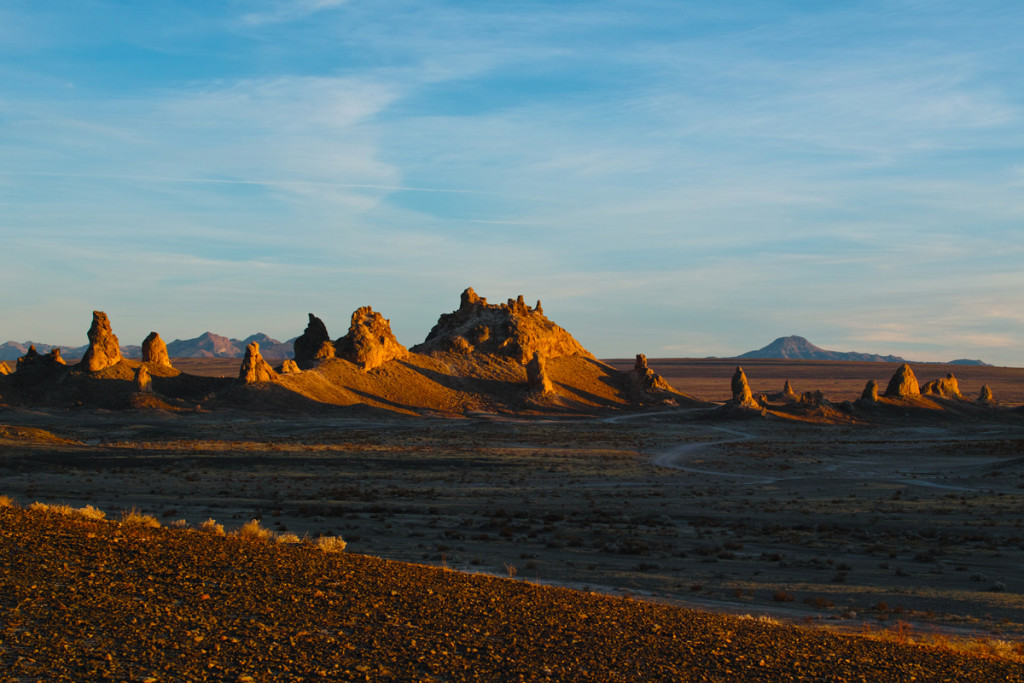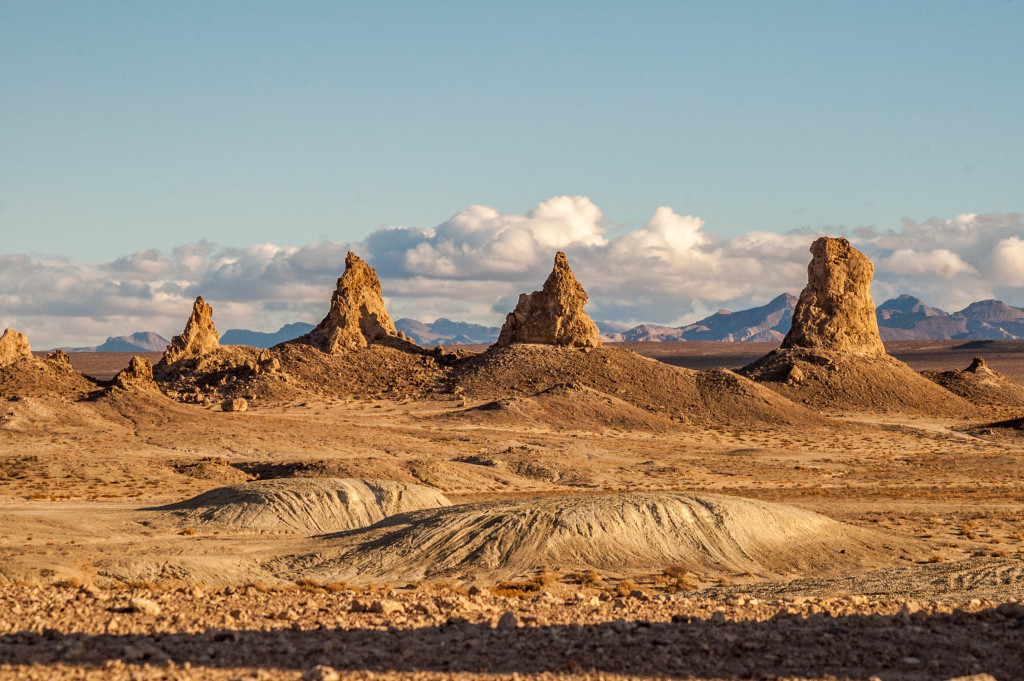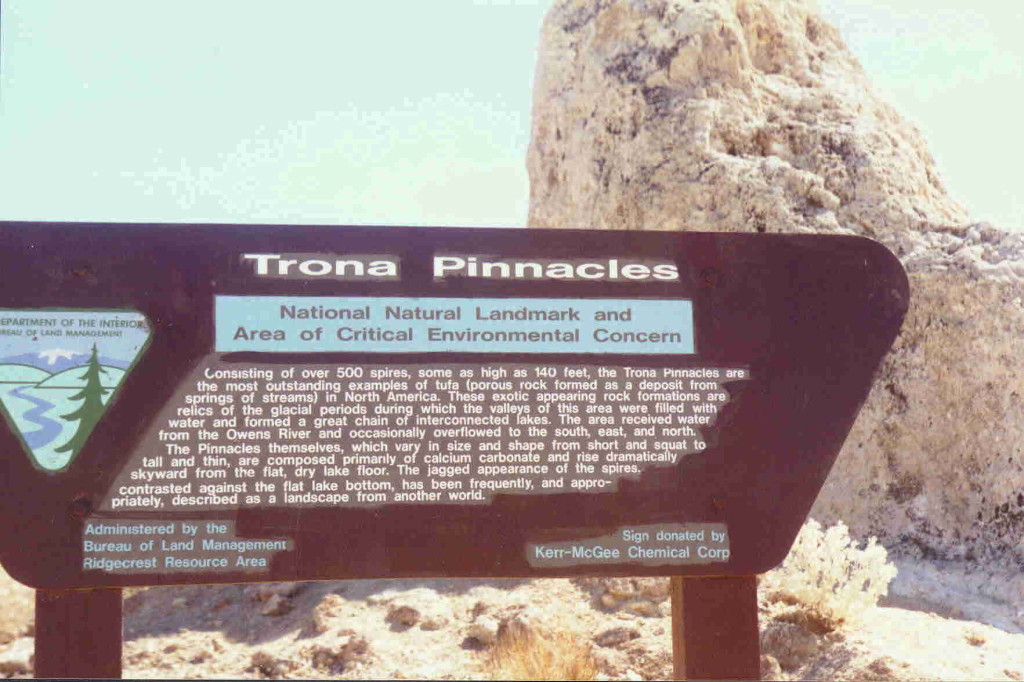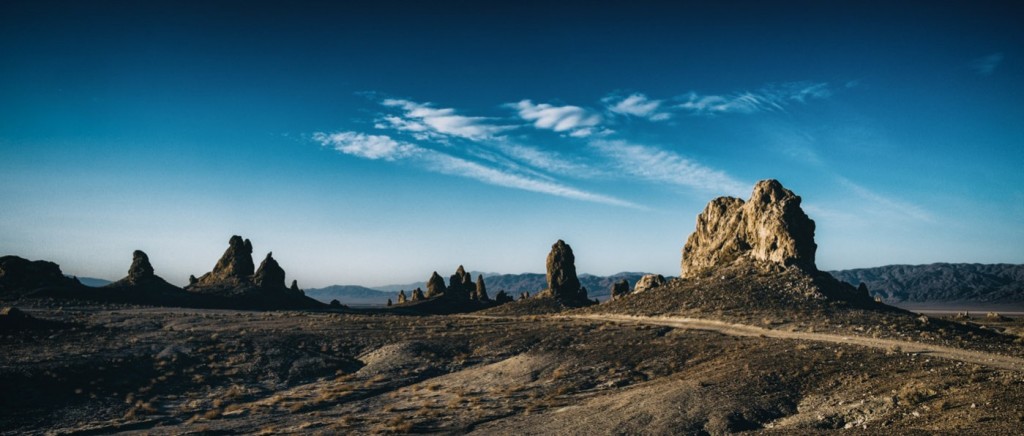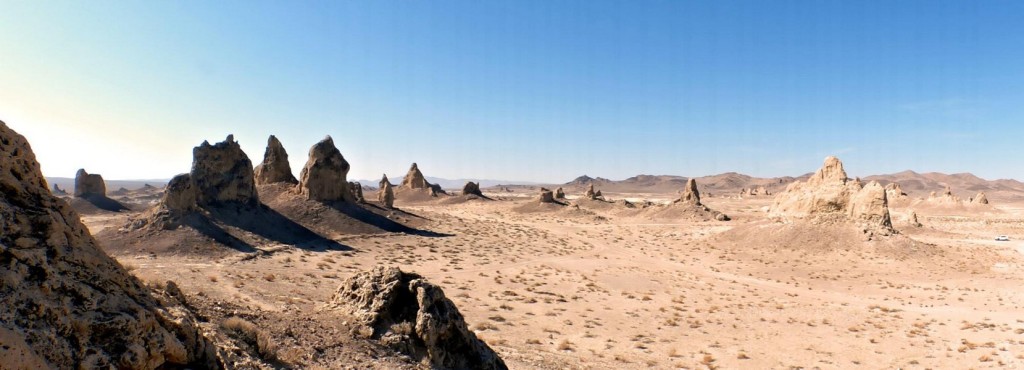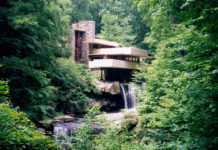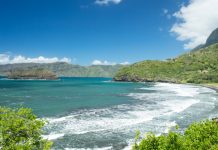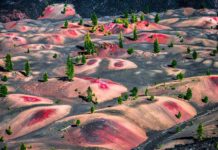The most fantastic, eerie, and unique geological landscape and worldly shapes are the Trona Pinnacles in the California desert. These are also known as Tufa pinnacles, formed peculiar shapes due to the long-ago glacial lake underwater 10,000 to 100,000 years ago. More than 500 pinnacles are composed of calcium carbonate with a mix of blue-green algae thrown in. The city of Trona is ten miles to the north of Argus Range and 18 miles from Death Valley National Park. The elevation of pinnacles is more than 1800 feet above sea level.
The first question comes into mind how these formations are made? So, during the Pleistocene Ice Ages, huge runoff spilled from the Sierra Nevada into a chain of inland seas and get interconnected lakes stretched from Mono Lake to Death Valley and including Searles Lake. The massive amount of alkaline lake water and calcium-rich groundwater combined to create Tufa formations.
If you’re fit enough then you can walk in between 140 feet tall and 40 feet wide pinnacles. The Trona Pinnacles formed during three ice ages, divided by age and elevation. However, on the northern group side the best known as Tufa towers, and most shapes are tombstones, ridges, and cones. The Trona Pinnacles are the favorite film location in more than a dozen hit movies. More than 30 film projects a year are shot among the tufa pinnacles.
The different peoples historically associated different names with strange forms, like ancient spires were once called “Cathedral City”. Geologically the pinnacles are classified into four general shapes, towers are taller 30 to 40 feet, tombstones are rise 20 to 30 feet, dumpy and mounded cones are 10 feet tall and the ridge is 800 feet long 500 feet wide, and 140 feet tall.
In 1968, Trona Pinnacles were designated as a National Natural Landmark by the U.S. Department of the Interior. The large ancient spear points and atlatls pointed, that humans have been lived here somewhere 10,000 years ago. Camel and wooly mammoth bones have been discovered near Searles Lake. Desert life is never easy in any era, to endure the scorching temperatures above 115F and rainfall is just three inches a year.
Desert Holly, Salt Bush is the main plant creeping along some of the pinnacles. So, Trona Pinnacles will be a lifetime journey into one of the most strange geological wonders in California. The Trona Pinnacles is an ideal place to explore in the fall, winter, and spring months. Visiting the site in the early morning and evening is especially dramatic as are nights with a full moon.
The dirt roads network winds throughout and offer plentiful vantage points from which to view and photograph the Pinnacles. For hiking lovers, you should wear sturdy shoes to enjoy the best view of Trona Pinnacles. Camping is also allowed at Trona Pinnacles and encouraged to use existing campsites and fire rings.



